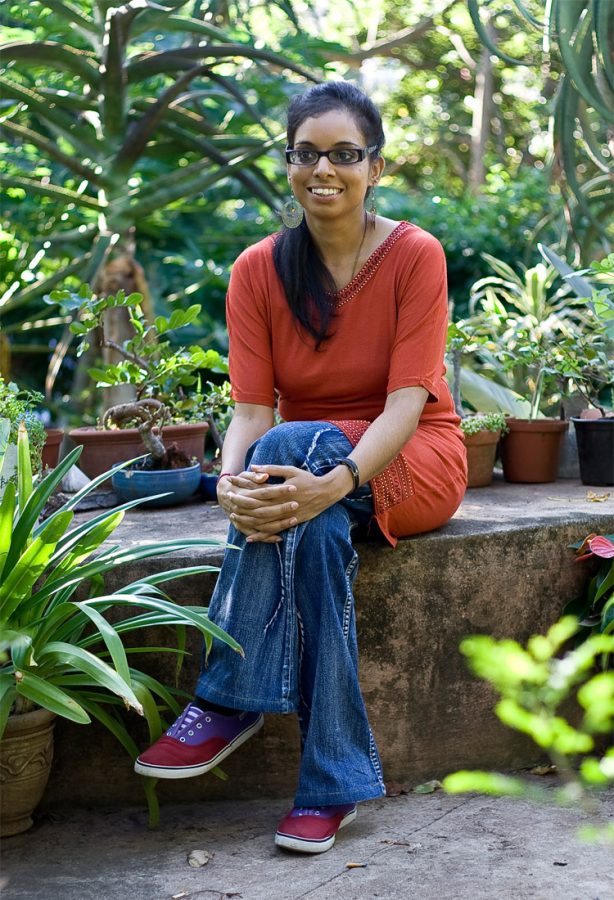A Time for Honest Reflections by People of Faith
20201027Throughout October, Religions for Peace (RfP) has been co-hosting a series of webinars for interreligious and inter-generational dialogues on the current climate crisis. As a member of the RfP Youth Media Team and RfP Interfaith Youth Climate Forum, I had the opportunity to engage in academic dialogue with RfP’s esteemed youth and senior leaders from the Yale Forum on Religion and Ecology, an international, multireligious project working at the intersection of faith and environmentalism. This webinar on 2 October 2020, Religions, Ecology, and Our Environment, unveiled a sincere moment of reflection on the current state of our planet, demonstrating the urgent need for religious ecologies and religious environmentalism.

Religions for Peace’s youth network took the hot seat of asking the difficult, yet critical questions to mobilise and inspire for climate action. Indeed, this convening warranted our reflection: it took a global pandemic to see how little we actually need to survive, that humanity still fails to live in balance and harmony with nature and co-exist with all of God’s creations. This lack of divinity, interconnectedness, and spiritual ethics in humankind’s mind-set and behaviour has contributed to the rampant degradation of our planet.
The 5-8 October 2020 followed an intense four-day global conference, Faith for Nature: Multifaith Action in Skalholt Iceland, which was livestreamed globally and co-hosted by the United Nations Environmental Programme (UNEP) Faith for Earth Initiative, Religions for Peace, and the Icelandic Government. I was invited to be a speaker, participating through the African Council of Religious Leaders-Religions for Peace (ACRL-RfP) in workshop discussions addressing the challenges of faith-based organisations implementing the Sustainable Development Goals (SDGs). Discussions also centred on mobilising values, ethics, spirituality, and faith-based principles and action to achieve the SDGs.
It was illustrative and inspiring to see how religious leaders from around the world took the virtual stage to not simply reiterate the power of faiths as gatekeepers and custodians of society, but also call on leaders to incorporate spiritual ethics in approaching climate change. Protecting the earth protects future generations and those most vulnerable. At our core, it is our moral obligation and responsibility to heal our shared planet.
People of faith need to work together, utilising sacred scripts to empower each other to lead a new world where humanity does not revert to greed and consumerism. I was personally moved by Radhanath Swami and Chief Rabbi David Rosen’s statements on the relationship between religious traditions and nature:
“Nature is creation. Therefore, nature is the manifestation of the divine,” said Rabbi David Rosen. The disconnection between “the self” and its interconnectedness with existence contributes to our failure to recognise the connection between nature and God. To know, love, and understand God, one has to know, love, and understand God’s creation. We then shift to a viewpoint of seeing nature as sacred and we are humbled by the Divine’s creation in orienting ourselves to a larger role in the cosmos, in the Earth’s ecosystems, and in human societies. In this spirit, we are only tenants on this planet; we cannot trample across the Earth in arrogance.
In addition, I was also moved by Master Shih Cheng Yen’s talk, who founded the first women Buddhist Humanitarian, Tzu Chi organisation in Taiwan in 1966. She teaches us how to utilise waste and recycle to re-use as a resource. Her message is that the Earth is teaching us an important lesson through this pandemic. Until we halt our consumption of animals, we cannot value and appreciate the sacredness of all beings. One of her projects is to collect plastic bottles, recycle them, and convert them into thermal blankets as a local humanitarian project.
This moment in history warrants us to reflect in unison. But are we willing to transform our habits for the benefit of all? As stated in the Bhumi Gita from the Shreemad Bhagavatam, Canto 12, Chapter 3; “śrī-śuka uvāca, dṛṣṭvātmani jaye vyagrān, nṛpān hasati bhūr iyam, aho mā vijigīṣanti, mṛtyoḥ krīḍanakā nṛpāḥ, “Seeing the kings of this Earth busy trying to conquer Her, the Earth herself laughed. She said: “Just see how these kings, who are actually playthings in the hands of death, are desiring to conquer me.”